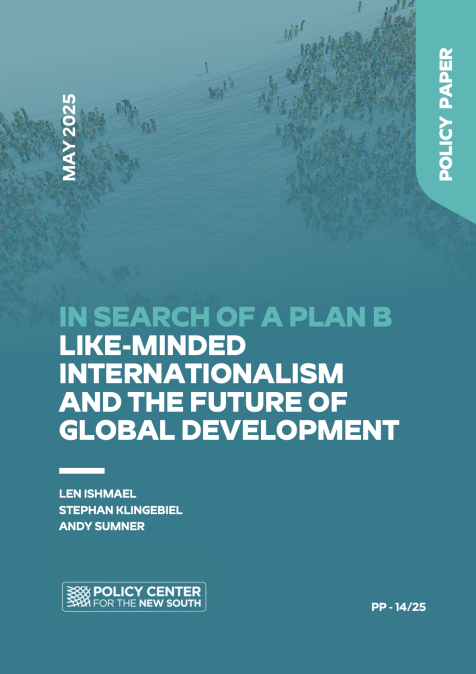Publications /
Policy Paper
Though the international order has changed greatly over the past decades, the transformation now underway is significantly deeper and more profound. The post-1945 multilateral system—largely constructed under U.S. hegemony and framed by liberal values including open markets, rules-based cooperation, and a commitment to global development—is fragmenting. Over the past decade, a series of systemic shocks, including the COVID-19 pandemic, rising geopolitical tensions, and the return of great-power competition, has exposed the limitations of traditional multilateralism. The recent withdrawal of the United States from Agenda 2030 and the Sustainable Development Goals (SDGs), alongside its increasingly transactional foreign policy under the second Trump administration, marks a decisive break from the consensus that has underpinned global governance in recent decades. This development has profound implications for international cooperation, particularly in the fields of development, climate, and global public goods.
In this context, this paper develops the concept of like-minded internationalism—a form of collective action that relies on coalitions of countries and actors aligned around shared normative commitments and pragmatic objectives, rather than formal multilateral structures or hegemonic or hierarchical leadership. Like-minded coalitions, we argue, offer a viable institutional response to a more multipolar, contested, and volatile international system. Rather than seeking universal consensus, they build issue-based alliances that are flexible, pluralistic, and often innovative in form. They have the potential to achieve more than the lowest common denominator typically reached by less like-minded groups. Importantly, they reflect a shift from global governance premised on inclusion and universality, to a logic of selective cooperation driven by convergence on key goals.
The paper is structured as follows. Section 2 gives a historical perspective on the current moment, tracing the rise and partial erosion of liberal multilateralism, and the emergence of new geopolitical fault lines. Section 3 expands on the concept of like-minded internationalism. Section 4 explores two illustrative cases—UNITAID and the High Ambition Coalition—highlighting the conditions under which like-minded coalitions emerge and the political dynamics that sustain them. Drawing on a policy process framework, we analyze how these initiatives were shaped by actors and networks, context and opportunism, and narratives and evidence. The paper concludes by reflecting on the implications of like- minded internationalism for the future of global cooperation, suggesting that it represents not a retreat from multilateralism, but an adaptive response to its breakdown—one rooted in coalitional agency, institutional pluralism, and strategic pragmatism.




